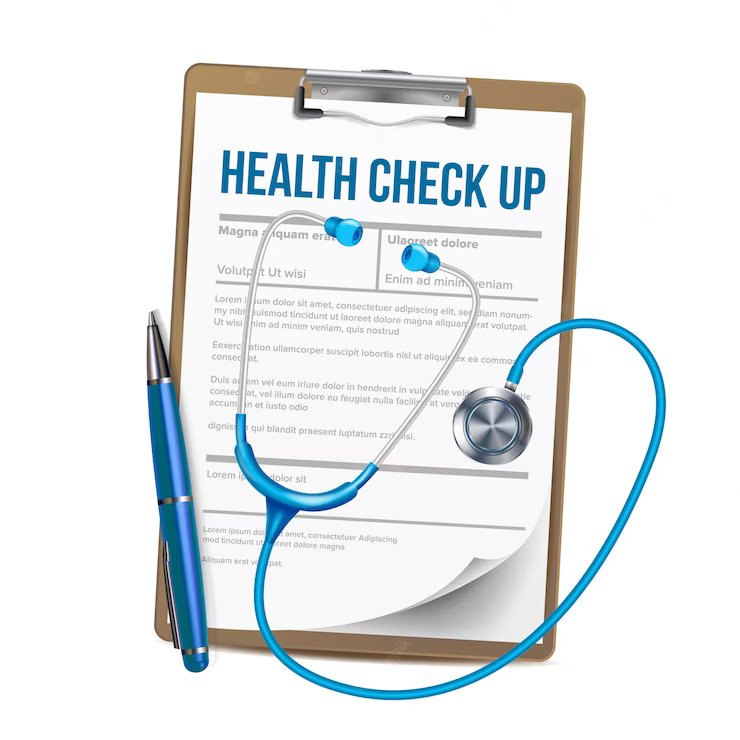Health And Medical Care
Let’s Talk: Your Health & Care
Health And Fitness
Why exactly does investing in your health mean?
The last time I checked, investing in your health means taking care of your body so it can take care of you. It means eating well, exercising, and getting the right amount of sleep. It also means taking care of your mental health by practicing mindfulness, getting support from friends and loved ones and doing things that make you happy.
Why is it important?
1. Prevent disease before treatment is needed
Early detection means that you can get it treated sooner and overall, improve your overall wellbeing.
2. Encourages you to lead a healthier lifestyle
Taking control of your wellbeing can reap so many benefits. Health test clearly outlines any low or below optimal levels. This can give you the motivation you need to take your health into your own hands and make lifestyle changes which benefits you.
3. Saves you money in the long-term
Better health can reduce your healthcare spending. If you are healthy, you will see financial benefits in the short and long term and could even obtain a significantly better quality of life.
4. Increase productivity at work
By keeping healthy you can ensure your immune system is in top shape which will increase your productivity at work. By regularly checking your health you can get to the bottom of why you have been feeling unwell which results in less days spent in bed sick!
5. Improves your sex life
Did you know that regular exercise can help increase your libido? When you exercise, the brain produces endorphins that stimulate the release of sex hormones.
Regular check ups help to test if there is an imbalance that could be affecting your fertility, mood, weight and energy levels.
Remember Investing in your health is the best investment you can make.
Health Check Tools
6 Health Monitoring Tools Every Home Should Have
1. Blood Pressure Cuff
Dr. Anderson explained, “For anyone with a history of high blood pressure or who takes blood pressure medication, this is key for measuring how your blood pressure changes over time. Knowing your baseline from at-home measurements will help show your clinician how you’ve progressed.”
2. Scale
The scale is simultaneously one of the most owned and most avoided monitoring tools around. If you aren’t perfectly satisfied with your health, your weight can be a point of anxiety. While weight is one of many factors used to evaluate your overall health, monitoring your weight is one of the simplest ways to keep track of progress. Today’s smart scales are able to estimate body fat percentage and other metrics to help you in your fitness and nutrition goals. Make sure your scale is easily accessible for use about once every week.
3. Thermometer
This one is a classic. But the technology has not been stagnant. Gone are the days when you had to hold the stick under your kids tongues and don’t even ask your grandparents about their childhood thermometer experiences. Digital thermometers are evolving to be instant, accurate and completely non-invasive, with infrared technology that doesn’t even have to touch your kid’s forehead. “Stop squirming!”
4. Stethoscope
Your doctor wears one. Your child has one in their playset. But, do you have a stethoscope at home? While these devices could be a little intimidating for parents and at-home users, they can be very helpful. You can listen to lungs, heart and many other bodily functions to look out of early signs of issues or to track progress in recovery. If you have heart arrhythmias or other known issues, stethoscopes can help you get even more insight into your daily health.
5. Otoscopes
If your kid is complaining about an earache, an otoscope is the best way for you to get an idea of what might be going on. You should still visit a pediatrician to make a diagnosis for ear infections and the sort. But when it comes to small toys, food and crayons, an at-home otoscope will shine a light on anything crammed up your little one’s ears and nose.
6. Smart Watch
Today’s smart watches do more than show you a text message at the flick of your wrist. Devices like the latest Apple Watch pack several useful monitoring tools into a tiny square attached to your wrist. Your watch may be able to measure your blood oxygen levels, count your steps, estimate your calorie burn, monitor your heart rate and even perform an electrocardiogram. Your watch may not operate with the same accuracy as dedicated tools, but the fact that you can measure all of these metrics instantly throughout the day makes a smart watch an excellent device for keeping up on your health.
Monitor at Home. Discuss with a Doctor.
Having these tools at home is a great way to stay familiar with your body. With a little study and practice, you can make great habits that will help alert you to issues and illnesses. Of course, some minor sicknesses can be diagnosed and treated at home. But, be sure to visit your primary care physician if you’re feeling particularly ill. After all, there’s no replacement for wellness exams and trained, experienced professionals. What other tools do you use regularly for yourself and your family?
ParentingUrgent CareSafetyHeart Health
Are you looking for Counseling & Therapy online ?
Talkspace – #1 Rated Online Therapy, 1 Million+ Users
Talkspace is an online and mobile therapy company based in New York City. It was founded by Oren and Roni Frank in 2012. Talkspace users have access to licensed therapists through the website or mobile app on iOS and Android.
****The 8 Best Health Apps By Sports Illustrated
****The Most Common Symptoms of Stress
American Psychiatric Association
Warning Signs of Mental Illness









